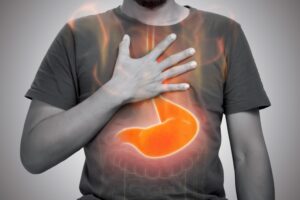
The Link Between GERD and Weight Gain
The connection between your weight and your reflux symptoms is a two-way street, with each one influencing the other.
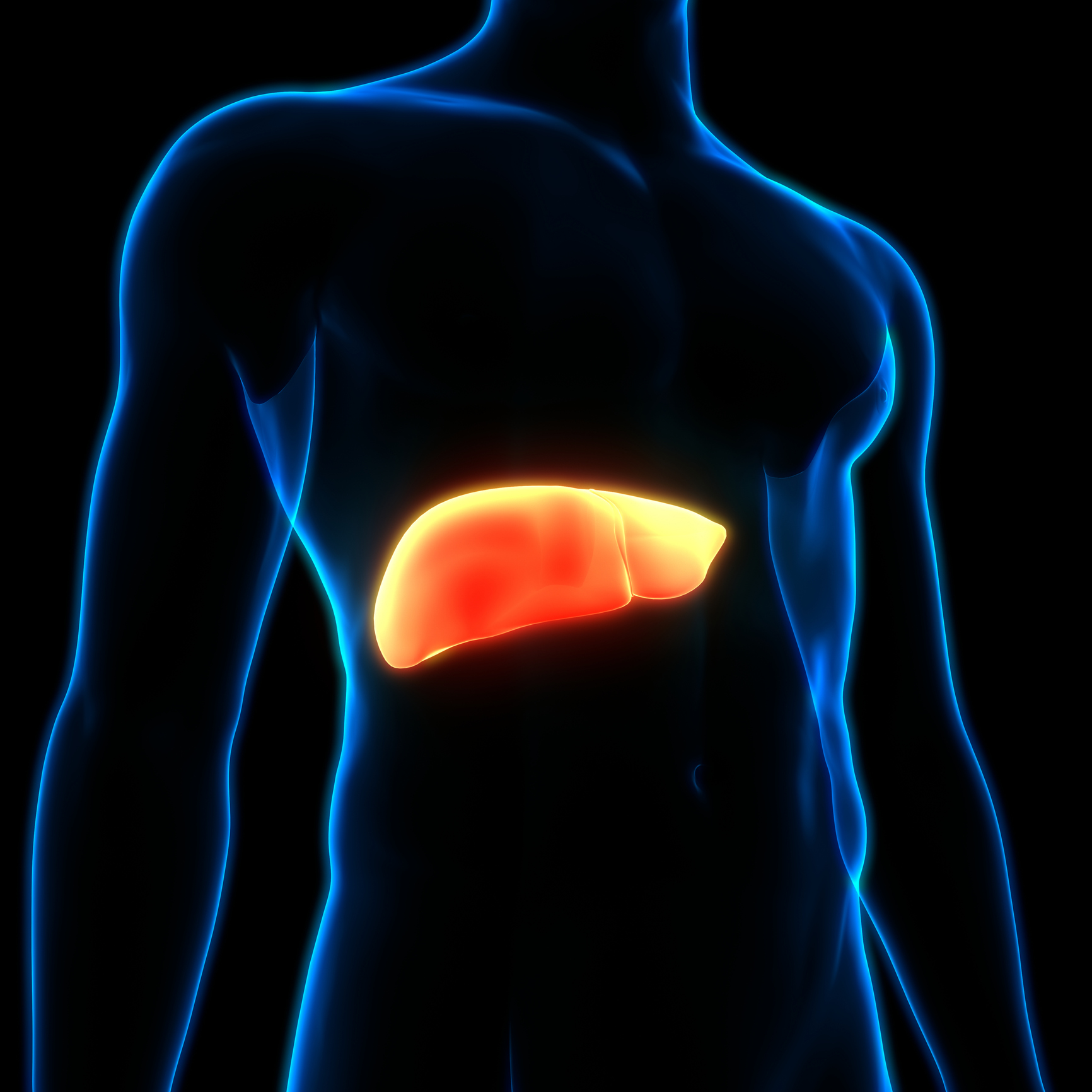
Fatty liver disease, also known as hepatic steatosis, occurs when excess fat accumulates in the liver. Although fatty liver disease can be asymptomatic and non-progressive, it has the potential to lead to inflammation and scarring, which can ultimately result in serious health problems.
Fatty liver disease can be categorized primarily into two types:
Both types signify the accumulation of excess fat in your liver cells, yet their causes and risk factors differ markedly.
Nonalcoholic Steatohepatitis (NASH) is an aggressive form of non-alcoholic fatty liver disease (NAFLD) that progresses beyond the initial accumulation of liver fat to inflammation and liver cell damage. This inflammation can lead to scarring of the liver tissue (fibrosis), which may progress to cirrhosis or even liver cancer in severe cases. NASH is particularly concerning because it often develops silently, without any overt symptoms until the liver damage becomes advanced.
Risk factors for NASH include obesity, insulin resistance, high blood sugar levels, and high levels of fats, particularly triglycerides, in the blood. Although NASH shares many of the same risk factors as other forms of NAFLD, its potential to cause significant liver damage and failure sets it apart as a critical condition requiring medical attention.
Fatty liver disease often progresses silently, with many individuals experiencing no symptoms in the early stages. When symptoms do manifest, they might include fatigue, weight loss or gain, abdominal discomfort, and a general feeling of being unwell.
In more advanced cases, symptoms could escalate to jaundice (yellowing of the skin and eyes), swelling in the legs and abdomen due to fluid build-up, and a propensity to bruise easily.
It is crucial for individuals who suspect they might have alcohol-related fatty liver disease to seek medical evaluation, as early detection can significantly influence management and outcomes.
The root causes of fatty liver disease extend beyond just excessive alcohol consumption and metabolic syndromes. Other contributing factors include rapid weight loss, certain medications known to affect liver health (such as corticosteroids and some anti-convulsants), and underlying health conditions like type 2 diabetes and high cholesterol.
Additionally, poor dietary choices, particularly those high in saturated fats and processed sugars, play a significant role in developing this condition. Understanding these common causes is pivotal in preventing and managing fatty liver disease, underscoring the importance of a balanced diet and a healthy lifestyle.
Diagnosis of fatty liver disease typically involves a combination of medical history review, physical examinations, blood tests, imaging studies, and sometimes liver biopsy. Doctors may start with blood tests to check liver enzyme levels, which can indicate liver stress or damage. Imaging tests such as ultrasound, CT scans, and MRIs are used to visualize fat accumulation in the liver.
A liver biopsy, where a small sample of liver tissue is collected and examined under a microscope, might be performed to assess the extent of liver damage and inflammation. Early diagnosis is critical in managing and mitigating the effects of fatty liver disease, emphasizing the need for individuals at risk to undergo regular health check-ups.
Treating fatty liver disease involves a multifaceted approach aimed at reducing risk factors and managing the conditions contributing to the disease.
For NAFLD, lifestyle modifications are the primary recommendation, including weight loss through a healthy diet and regular exercise. Reducing the intake of saturated fats, sugars, and refined carbohydrates is crucial, along with increasing the consumption of fruits, vegetables, and whole grains.
For those with ALD, abstaining from alcohol is essential to halt disease progression. In some cases, medication may be prescribed to manage obesity, diabetes, or high cholesterol levels.
Advanced stages of fatty liver disease might require surgical interventions or liver transplantation. Regular monitoring and medical checkups are important to assess the effectiveness of the treatment plan and make necessary adjustments.
Early detection of fatty liver disease is crucial for effective management and for preventing progression to more serious liver conditions, such as cirrhosis or liver cancer. If you experience any symptoms related to fatty liver disease, such as unexplained fatigue, abdomen pain, weight changes, or jaundice, it’s important to consult your healthcare provider.
Individuals with risk factors for developing fatty liver disease, including those with obesity, diabetes, high cholesterol, or a high alcohol intake, should discuss regular screening with their doctor. Early intervention can significantly improve the long-term outlook of individuals with fatty liver disease.
Fatty Liver disease is not a condition that you want to ignore. Please call your doctor or visit Allied Digestive Health as soon as possible.

The connection between your weight and your reflux symptoms is a two-way street, with each one influencing the other.

A primary care doctor is an excellent starting point; finding a specialist who understands the complexities of IBS can be a game-changer.
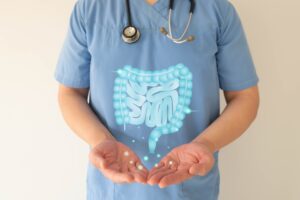
Knowing what to expect can help ensure you are fully prepared for your colonoscopy, a critical tool in preventing colorectal cancer.

When a flare-up strikes, the natural instinct is to reach for pain relievers. But can these common medications help, or make things worse?

There’s a wide range of what’s considered normal, but “healthy” generally refers to consistency, ease, and frequency.

An IBS diagnosis in older adults can be more complex because the symptoms can mimic more serious conditions that become prevalent with age.
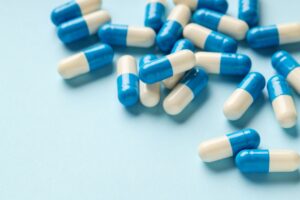
Antibiotics are powerful drugs designed to kill harmful bacteria, but they don’t always distinguish between good and bad microbes.

The goal is to check for signs of cancer or precancerous growths (polyps) in individuals who have no symptoms and are considered at average risk.
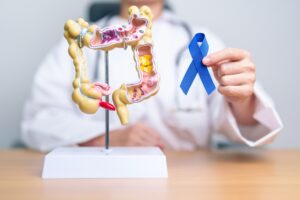
Early detection can identify precancerous polyps or cancer in its initial stages, significantly improving treatment outcomes.

When you’re under stress—whether from a demanding job, personal challenges, or even anxiety caused by IBS itself—it can trigger physical reactions in your body.

Maintaining awareness of hemorrhoid symptoms and consistent use of effective treatments can help prevent these long-term issues.

The connection between female sex hormones and IBS is complex but crucial to understanding why your symptoms fluctuate.
For Your Visit
Brick Office
P: 732-458-8300
Brick Medical Arts Building
1640 Route 88, Suite 202
Brick, New Jersey 08724
Mon – Fri: 8:30AM – 5:00PM
Sat & Sun: Closed
Neptune Office
P: 732-776-9300
Jersey Shore Medical Arts Building
1944 Corlies Ave. Suite 205
Neptune, New Jersey 07753
Mon – Fri: 8:30AM – 5:00PM
Sat & Sun: Closed
Jackson Office
P: 732-928-2300
706 Bennetts Mills Road
Jackson, New Jersey 08527
Mon – Fri: 8:30AM – 5:00PM
Sat & Sun: Closed
© All Rights Reserved